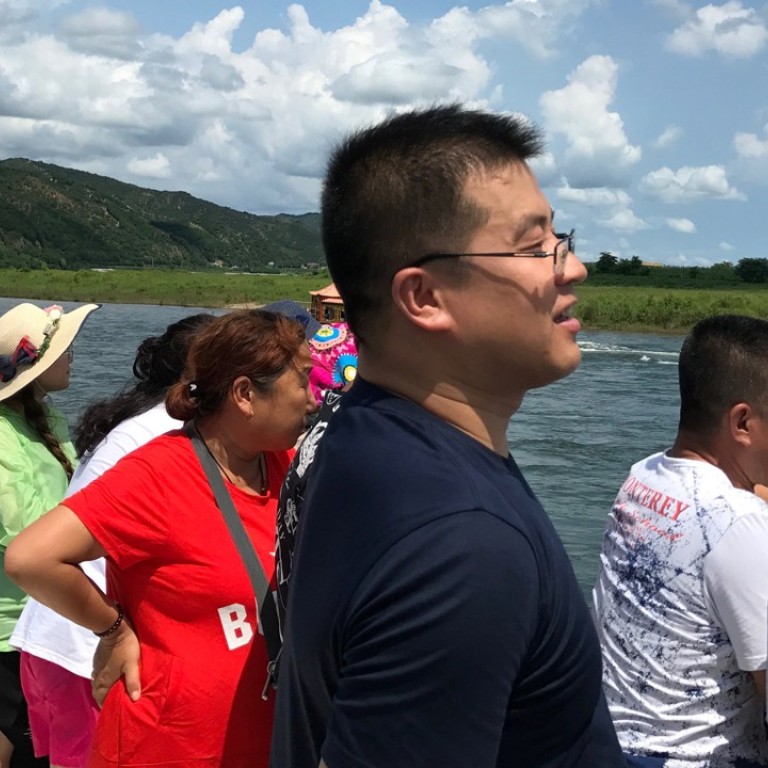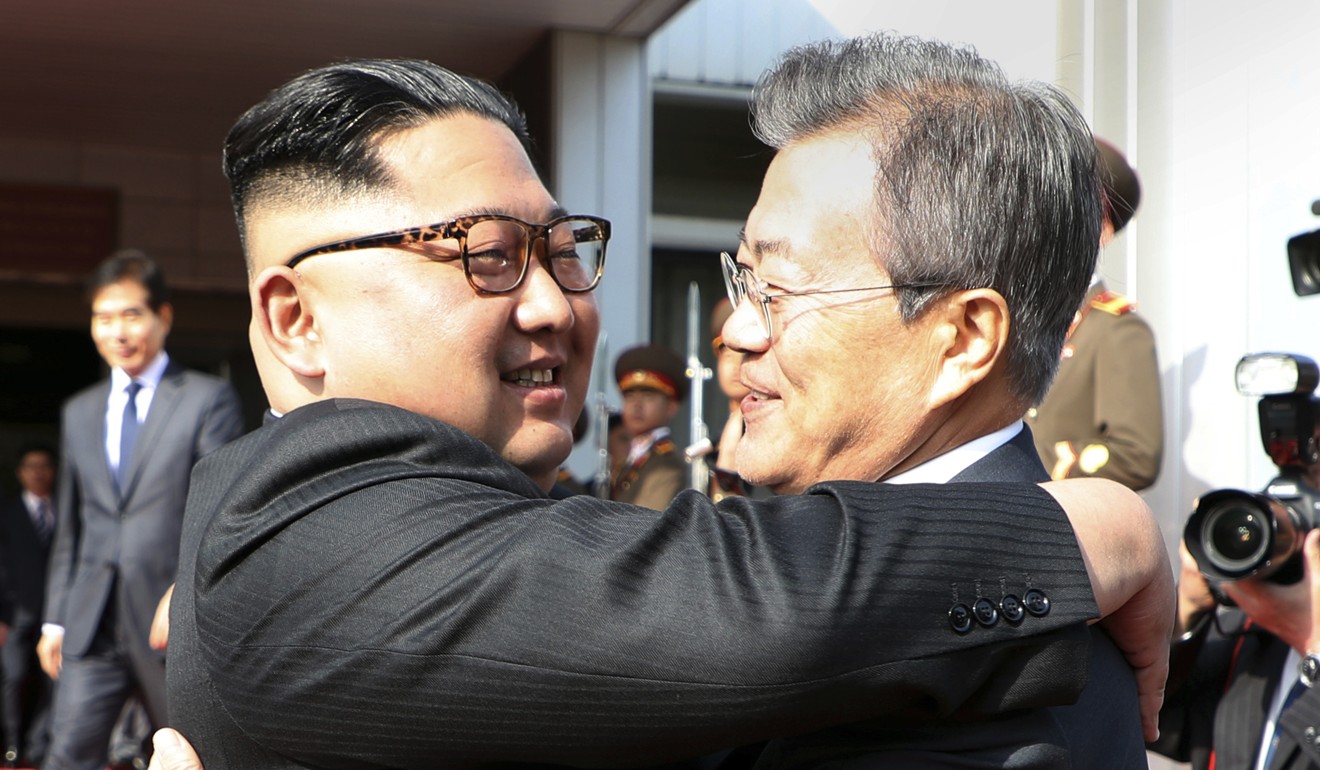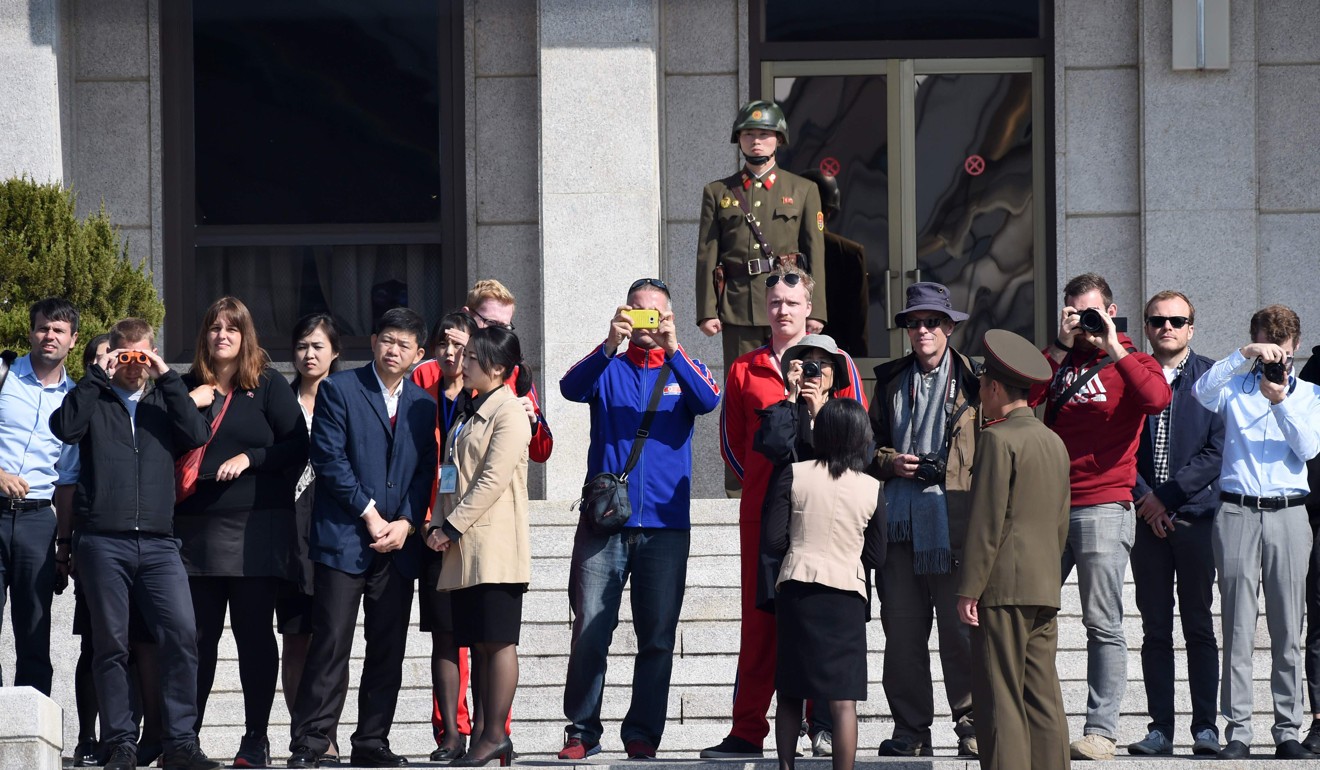
North Korea enjoying tourism boom after summit between Kim Jong-un and Moon Jae-in in April
More Chinese people have started to journey to North Korea as relations between Beijing and Pyongyang have improved
The number of foreign visitors to Pyongyang has been drastically increasing since the historic inter-Korean summit in April, with the image of North Korea becoming a peaceful and safe country, locals say.
In particular, Okryu-gwan – which offered Pyongyang’s traditional delicacy of cold noodles to North Korean leader Kim Jong-un and South Korean President Moon Jae-in at their summit dinner – has had a long queue everyday due to attracting a lot of foreigners.
With more foreign people beginning to make trips to Pyongyang, other sightseeing spots in the city, such as a cruising restaurant, a zoo and historical sites, have been flourishing in recent months, contributing to the nation’s economy, according to the locals.

Okryu-gwan, founded in 1960 in Pyongyang, has provided more than 6,000 guests with its signature cold noodles per day. The restaurant can accommodate as many as 2,000 people at once.
“Pyongyang cold noodles have drawn worldwide attention and become known as a symbol of peace and prosperity” in the wake of the inter-Korean summit, said Myong Ye-hua, a worker at Okryu-gwan.
Pyongyang cold noodles are served at the restaurant with a beef-, chicken- and pork-based broth as well as toppings of the three kinds of meat, sliced pear and cucumber, a boiled egg and kimchi – classic Korean fermented vegetables.
Okryu-gwan’s cold noodles are featured by noodles made from 100 per cent buckwheat flour, clean and transparent soup, and dignified metal bowls, Myong said.
North Koreans frustrated about delay to end-of-war declaration, says son of former South Korean president
Cold noodles are the most popular delicacy in Pyongyang, but with the number of foreign guests rising, “We are sometimes unable to meet the demand of all people” who visit the restaurant, she added.
The summit between Kim and Moon was held on April 27 at the Peace House, a South Korea-controlled building in the inter-Korean truce village of Panmunjom.
The head chef and other staff of Okryu-gwan travelled to the village, taking noodle-making machines to Tongilgak building on the North Korean-controlled side to cook the dishes.
At night in Pyongyang, a large number of foreign tourists have enjoyed the night view of the city on a luxury restaurant ship on Taedong, a major river that runs through the heart of the capital.
Having dining tables outside at both ends, the vessel with a length of 70 meters and a displacement of 820 tons, named Taedonggang, has seven rooms inside, one of which can seat up to 140 people and has a stage for a band to perform.
The number of foreign visitors has markedly increased. Many of them are Chinese and Russ
From Taedonggang, guests can drink in the scenery of famous places like statues of North Korea’s founder Kim Il-sung and his son and former leader Kim Jong-il, and the 300-metre-tall, pyramid-shaped 105-storey, glass-sheathed Ryugyong Hotel.
The Okryu-gwan building, characterised by its old-style Korean architecture and curved green roofs, is also seen from the ship.
“Now, many tourists think that they must ride this cruiser when they come to the DPRK,” Cha Su Jong, a waitress of the restaurant, said, using the acronym of the country’s official name, the Democratic People’s Republic of Korea. “Foreigners often come, too.”
When a group of reporters visited the ship on Saturday, around 350 out of the total 384 guests on the day were people from other nations, Cha said.
Indeed, numerous foreign travellers have been found in Pyongyang.
On Friday, more than 12,000 mainly university students gathered at Kim Il-sung Square to dance and celebrate the 65th anniversary of the suspension of open hostilities in the Korean war in 1953.
One out of 10 North Koreans live as ‘modern slaves’, forced to work by the Kim regime
Most of those who watched the choreographed mass dances were apparently foreigners. Some of them danced together with the North Korean men wearing suits and the women clad in the country’s high-waisted, long-skirted traditional dresses.
Foreign people have also been spotted at the Central Zoo and the Arch of Triumph in Pyongyang.
During the past few months, “the number of foreign visitors has markedly increased,” a female guide at the zoo said. “Many of them are Chinese and Russian.”

More Chinese people have started to journey to North Korea as relations between Beijing and Pyongyang have improved.
While the daily number of Chinese tourists used to be about 100, it has jumped to 1,000 since May, a representative of the North’s Korean Heritage International Travel Company said at a press conference earlier this month.
A reason behind the surge is that the situation surrounding North Korea has significantly changed, the representative added, with Kim Jong-un having held summit talks with Moon, Chinese President Xi Jinping and US President Donald Trump.
In North Korea, consumption of dog meat soars during hottest months
North Korea has sought to attract 2 million foreign visitors in 2020, as some political experts say the country has struggled to acquire foreign currency amid international economic sanctions aimed at stopping Pyongyang’s development of nuclear weapons and missiles.
“There are also visitors from Japan,” the zoo guide said, although Prime Minister Shinzo Abe’s government has requested all its citizens to refrain from travelling to North Korea.
A source familiar with North Korea has voiced concern over the current trend.
“The more foreigners make trips to North Korea, the more foreign currency North Korea can obtain. This would ease the effects of international economic sanctions, which could delay denuclearisation on the Korean Peninsula,” the source said.

